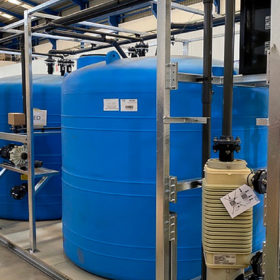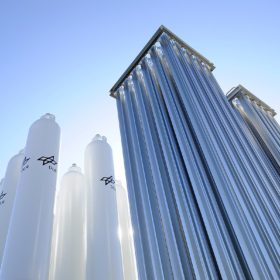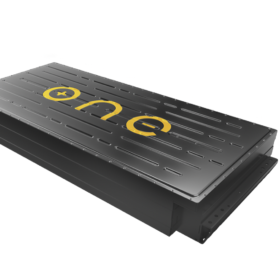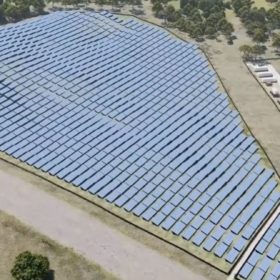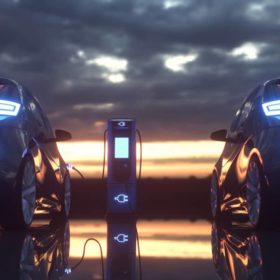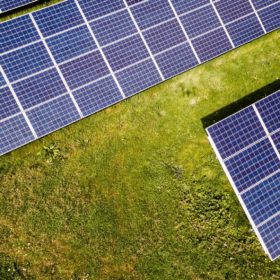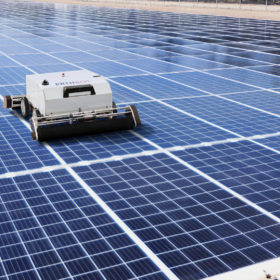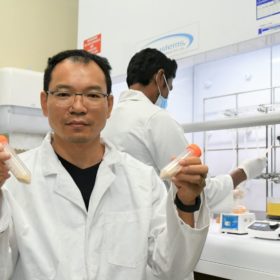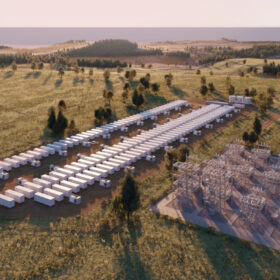Hybridising PV, redox flow batteries and geothermal heat pumps
A Spanish consortium is equipping one of Madrid’s largest metro and bus stations with a hybrid system that combines PV, geothermal pumps, and vanadium redox flow batteries to provide cooling and heating.
$125 million fund for innovative Australian–German green hydrogen projects opens
A joint fund with roughly $125 million from both the Australian and German governments has opened today and is seeking applications from projects across the value chain of renewable green hydrogen.
EV battery manufacturer demonstrates 1200km range, raises $88 million
The US battery manufacturer Our Next Energy (ONE) has said it will use the funding led by BMW to accelerate its R&D and build a US manufacturing facility.
Daintree microgrid gets go ahead after government signs $18 million deal
Construction of an innovative solar to green hydrogen microgrid in the Daintree Rainforest is set to commence with the Federal Government signing off on a multi-million-dollar deal to bring renewable power to communities in the World Heritage-listed region in Far North Queensland.
Monash researchers announce lithium-sulphur battery breakthrough
Researchers from Australia’s Monash University have created a new generation of lithium-sulfur batteries that they say provides a cheaper, cleaner and faster-charging energy storage solution that outlasts lithium-ion alternatives and is rechargeable hundreds of times without failing.
Weekend read: The changing geopolitics of green hydrogen
With 90% of world economies committed to net zero targets, the disruptive nature of the energy transition is becoming clear. Climate targets require us to triple renewable energy capacity by 2030, phase out coal by 2040, end fossil fuel subsidies, and ensure support for a just transition. While hydrogen is sure to be a key technology in this energy transition, the exact role it will play is not yet clear, reports Felicia Jackson.
Fortescue accelerates plans for gravity-charged electric powertrain
Australian-based mining giant Fortescue has commenced the development of an electric train that recharges itself using gravity after the resources company this week settled its $310 million purchase of UK-based technology and engineering services business Williams Advanced Engineering.
‘The major solar players will shift from PERC to TOPCon’
US analyst Clean Energy Associates made some notable predictions in its Q4 survey of the world solar manufacturing market, including echoing predictions made elsewhere that the new polysilicon production capacity coming online now will help arrest the spike in solar panel prices.
Rackless, earth-mounted solar provider earns funding
Erthos secured a US$17.5 million (AU$24 million) Series B from an investor who participated in the startup of Tesla and SpaceX. The utility-scale solar company has a 2.5GW project pipeline.
Organic battery progress brings Adelaide researchers tantalisingly close to full biodegradability
The realisation of biodegradable batteries is a step closer thanks to research from South Australia’s Flinders University, which has developed a 2.8V organic polymer battery. While this battery was made from synthetic polymers, research lead Dr Zhongfan Jia told pv magazine Australia the team’s future iterations will source “materials directly from nature” saying this promises to reduce waste and reliance on mined materials and could have novel applications in fields like biotech.
